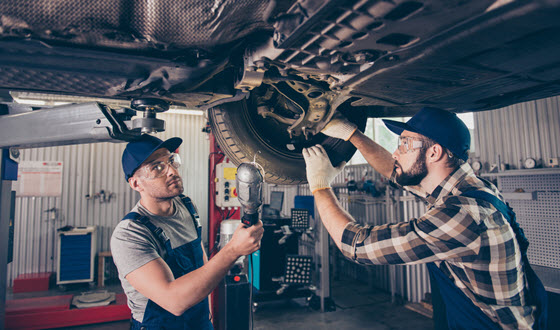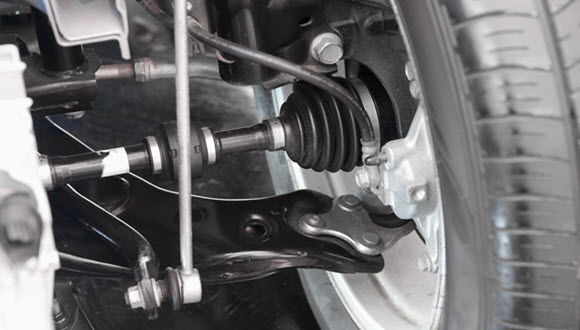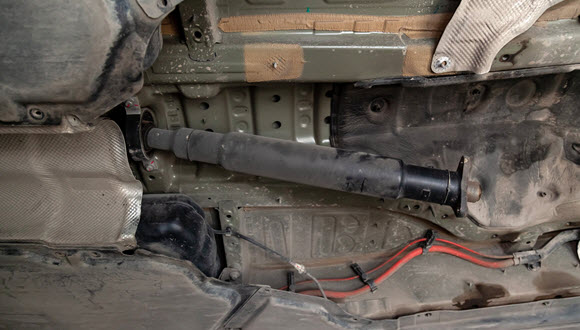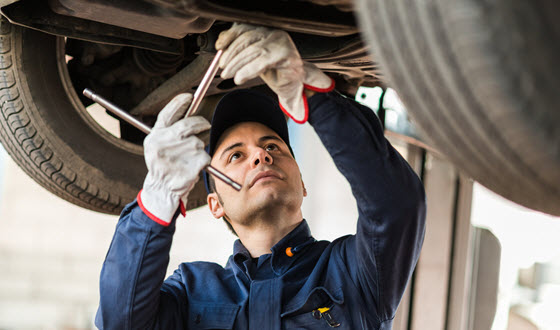Tips to Detect Tie Rod Failure in a Volvo From Certified Technicians in Dallas
Posted on | 29 Feb 2020 By Anita Gaal
The tie rod is a part of the steering mechanism of a vehicle and consists of an inner and outer end. Its purpose is to supply force to the steering knuckle from the steering center link, which ultimately allows the wheel to turn. The outer end of the tie rod connects to a sleeve that allows for the length of the tie rod to be adjusted. This is used to set the angle of the vehicle’s alignment.
Because of the tie rod’s role in the steering and alignment, damage to or failure of this component can be quite serious and even pose a danger to your driving experience. It is also an essential component to the suspension system. As the tie rod wears, it can become loose and develop slack. This increases the difficulty with which you steer and handle your Volvo.
Protecting your vehicle against the failure of the tie rod is as easy as making sure you take your Volvo to get regular maintenance, as it can be checked along with a standard oil change. Still, if you’re beginning to notice some of the symptoms discussed in this article, you need to have your Volvo serviced by a licensed professional as soon as possible. An untreated failure of the tie rod can lead to further problems with your vehicle, such as excessive tire wear and further damage to the suspension system.
Signs of a Bad Tie Rod
One of the most common symptoms drivers notice with a bad tie rod is actually surprisingly similar to the feeling of a flat tire. You may notice your vehicle pulling to one side while driving. Again, this is because the tie rod is a component that directly controls the ease with which you steer. A damaged tie rod will create resistance or other difficulties where there normally is none, causing unnecessary and even alarming challenges in standard operation.
A bad tie rod will also inevitably lead to uneven tire wear, primarily because of its effect on the vehicle’s alignment. Recall that the outer end of the tie rod is the component adjusted during vehicle alignment. Even if you have recently had your wheels aligned, the damaged outer end may still slip out of place and cause problems once again. You may also experience vibrations or a general feeling of instability when operating your Volvo in addition to squeaking noises coming from the front of your vehicle. In the event of a complete failure of the tie rod, you may lose the ability to steer entirely.
Driving With a Bad Tie Rod
Depending on the extent of the damage, it is surely possible to drive a car with a bad tie rod. However, it is in no way a good idea to do so, if you can avoid it. The major source of concern for such a decision is the potential for loss of steering. This is extremely dangerous and can pose a risk to you, your passengers, and other drivers on the road.
If the damage is not quite that bad, it is still recommended that you don’t drive the vehicle any more than you absolutely have to (i.e., driving it to the auto shop) because continued operation of the vehicle will inevitably lead to further damages. All of the effects of a damaged tie rod are intertwined, so chances are, if you’re only seeing one of the aforementioned symptoms, you may start noticing the others quite soon. The sooner the repair, the less damage to other parts and components.

Get Your Volvo Repaired at Euro Automotive
At Euro Automotive, we understand the investment you made when you purchased your Volvo. That’s why, when you bring your Volvo into our shop, we promise to treat and repair it as if it were our own. Our mechanics specialize in European repair services and, as the number one auto shop in Dallas with 18 years of service under our belt, we are prepared to offer the best alternative to expensive dealership repairs at fair pricing with great customer service. Call us today to schedule an appointment or visit us at one of our locations in Dallas, Garland, Arlington, and Forth Worth, TX.















